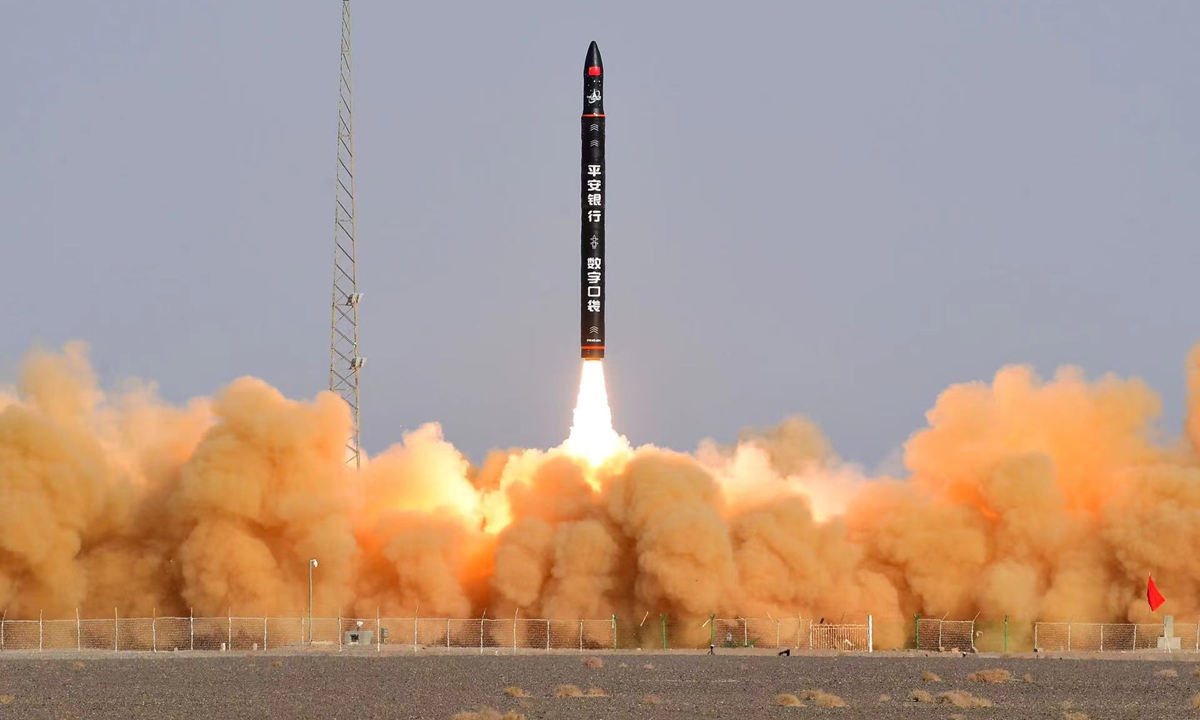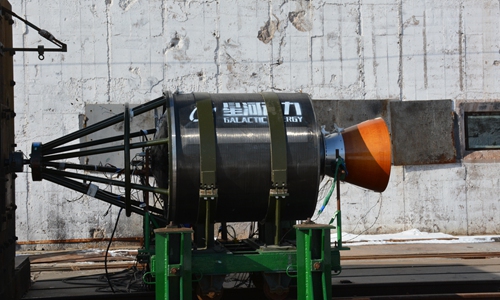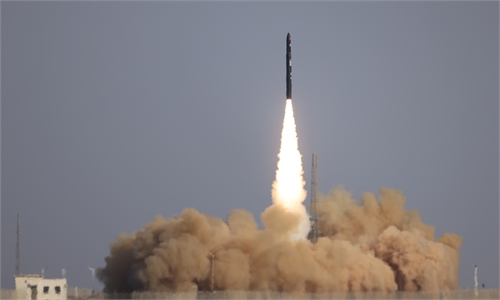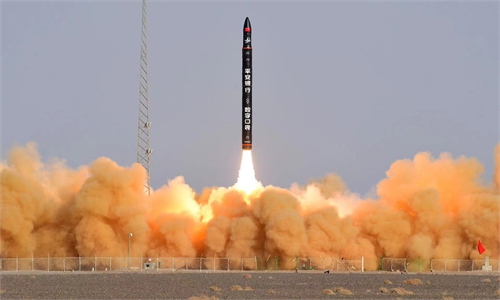
Photo: Chinese private rocket firm Galactic Energy completes second orbital launch at 12:12 pm on December 7. Photos: Courtesy of Galactic Energy
Beijing-based private rocket start-up Galactic Energy announced on Tuesday that its self-developed 50-ton-thrust reusable liquid oxygen-kerosene engine has succeeded on a full-system test run, a fresh sign of progress for China's commercialization of space program that has seen its local private firms closing in on their Western competitors.
The test run, the first of its kind for the engine, called Cangqiong (firmament), was intended to verify the engine's start-up and shutdown sequences, the feasibility of its system and structure plans, as well as the compatibility of all of its components, the company said in a post on its WeChat official account on Tuesday.
The successful test run, according to the company, is an indication that the liquid oxygen-kerosene engine with the maximum thrust in the country's private commercial space arena has officially entered the stage of engineering development.
It's also the country's first pintle-based liquid rocket engine that enables a greater throttling range, read the post, adding that the engine sports a multifunctional, integrated combination valve, among other domestic unequalled and global leading functionalities. A pintle injector controls the use of fuel and oxidizers.
The latest progress builds on the private rocket start-up's fast-track success amid a broad push for the country's bourgeoning commercial space industry, Huang Zhicheng, a senior expert on aerospace science and technology, told the Global Times on Tuesday.
Founded only in February 2018, Galactic Energy successfully made the second flight of its self-developed carrier rocket known as Ceres-1 in December 2021.
The launch, which sent five commercial satellites into 500-kilometer sun-synchronous orbit from the Jiuquan Satellite Launch Center in Northwest China's Gansu Province, made the company the first Chinese private firm to reach orbit twice.
Galactic Energy successfully completed its maiden orbital launch in November 2020, becoming the second private space firm in the country to do so.
In 2019, iSpace, also based in Beijing, became the country's first private firm to launch a rocket into space.
By making progress on liquid-fueled rocket engines that can carry heftier satellites, be reused and offer more cost-effective operations, local private rocket firms will inch closer to their more established state-owned counterparts and also their stronger Western rivals, according to Huang.
He cited China Aerospace Science and Technology Corp's heavy-lift Long March 5 rocket that used 120-ton-thrust engines burning liquid fuels as propellants much earlier.
As for Western private commercial space progress, SpaceX's Falcon 9 rocket is an often-cited example used when comparing China's private rockets using liquid propellants.
SpaceX, founded in 2002 by Elon Musk, is a much more mature private pioneer, with its Falcon 9 line-up still outsmarting the Chinese private offerings, as measured by carrying capacity, the costs of transporting and ability to be reused, Huang said.



